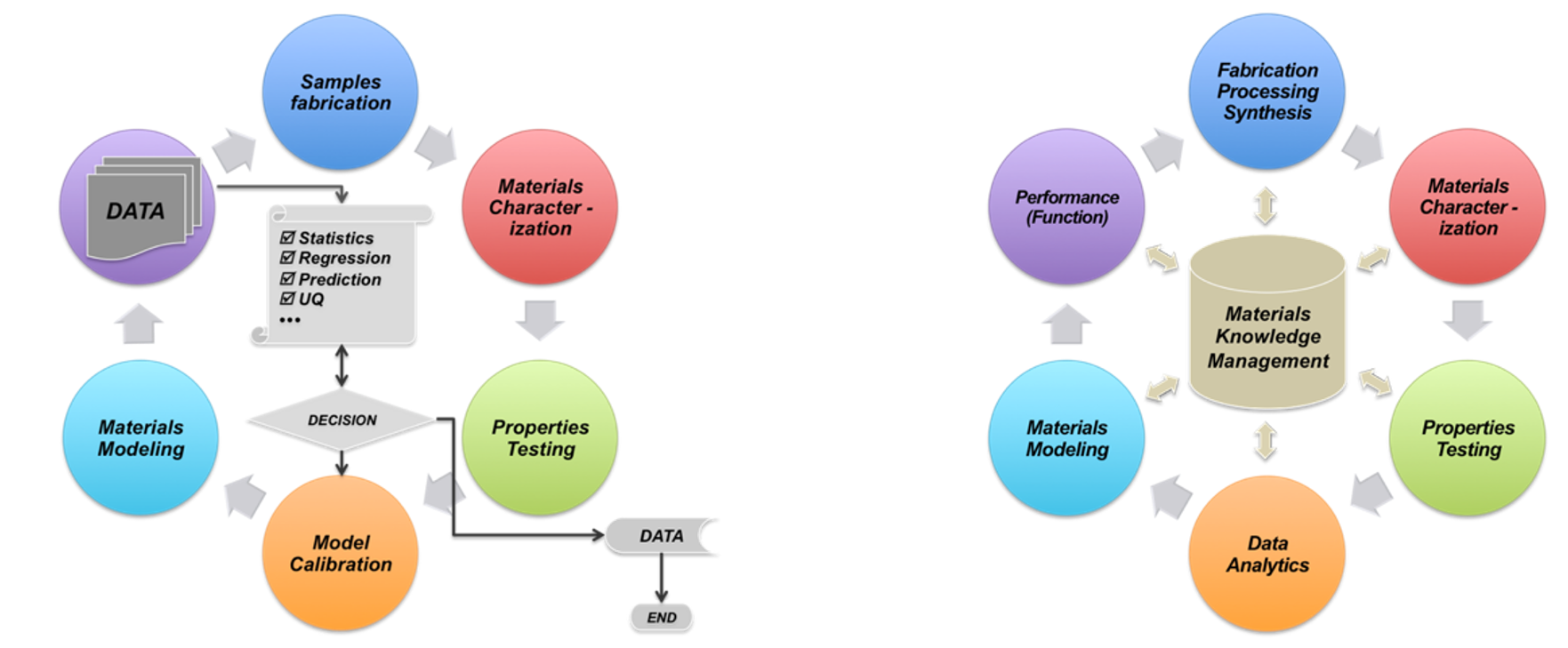CDI Project: Big and Sparse Data Sciences Integration with Theory, Experiment, Simulations, and Uncertainty Quantification
Return to Data and Integration Activities

PI: Amra Peles
Project Team: Jenna Pope, Scott Muller, Wenkai Fu
Project Collaborators: David Abrecht, Chris Barrett, Ray Bunker, Anne Chaka, Yingge Du, Neil Henson, Zach Kennedy, Tim Pope, William Rosenthal, Petr Sushko, Richard Williams
Project Term: October 2019 to September 2022
Key Science Questions:
- What are the key theoretical drivers responsible for phenomena behind the quantum and microelectronics materials, and the evolution of non-conserved complex chemical ensembles?
- What are the ways to “bake in” theoretical understandings into machine learning methods to gain insights into what are (so far) intractable problems?
- How to integrate dimension-reduction methods and use Bayesian optimization to create accurate neural network models and optimally guide experimental and theoretical efforts?
Project Description: Gaining an understanding and creating a capability to predict the temporal evolution of complex chemical systems in real-world environments requires a holistic and concerted effort that encompasses big and sparse data science integration with theory, experiment, simulations, and uncertainty quantification. Uncovering chemical dynamics and how it affects scientific and technological outcomes must be concerted, multi-disciplinary, high-throughput, and data-intensive effort.
The project team will accomplish this by developing a knowledge encompassing framework to enable recursive sciences integration and provide a predictive capability as well as method transferability.